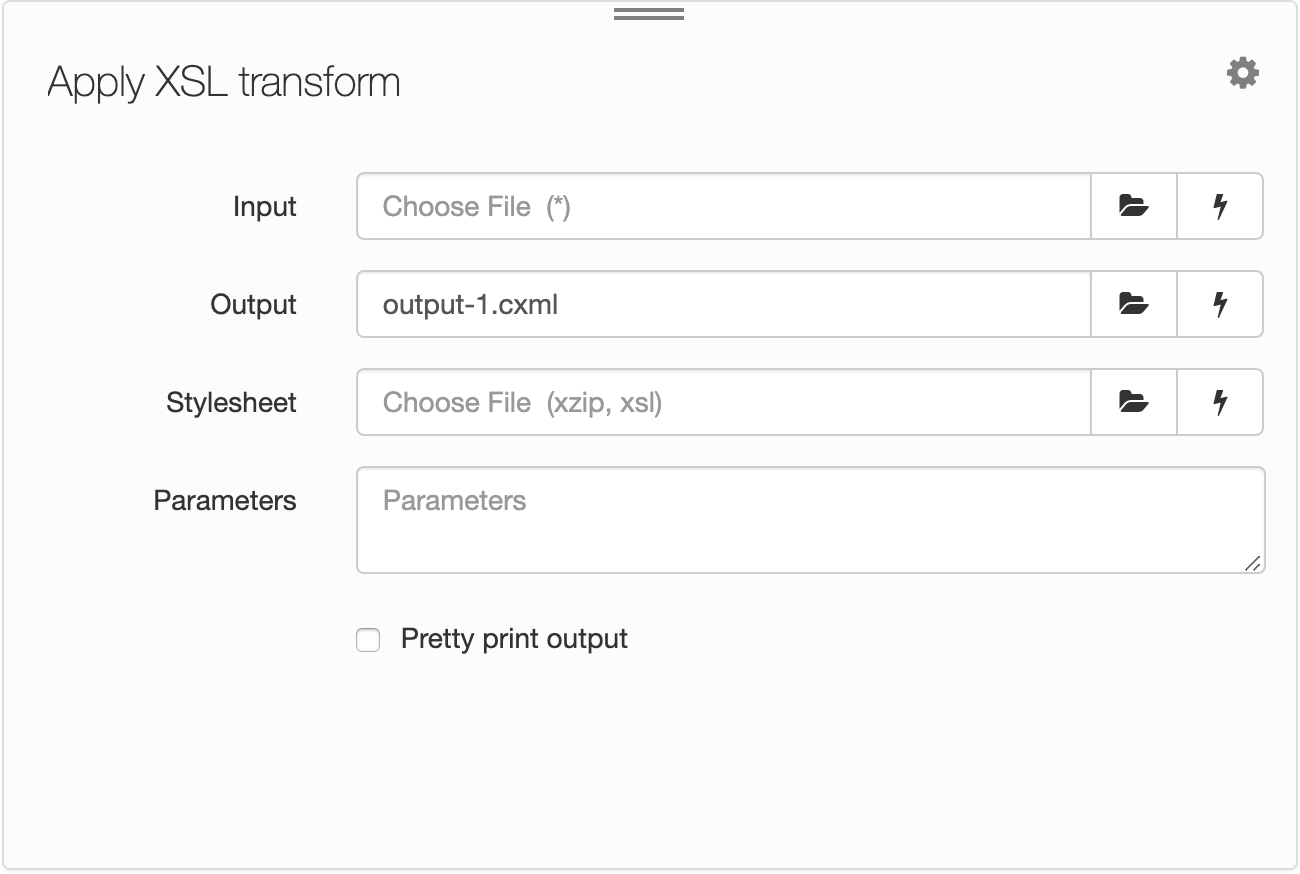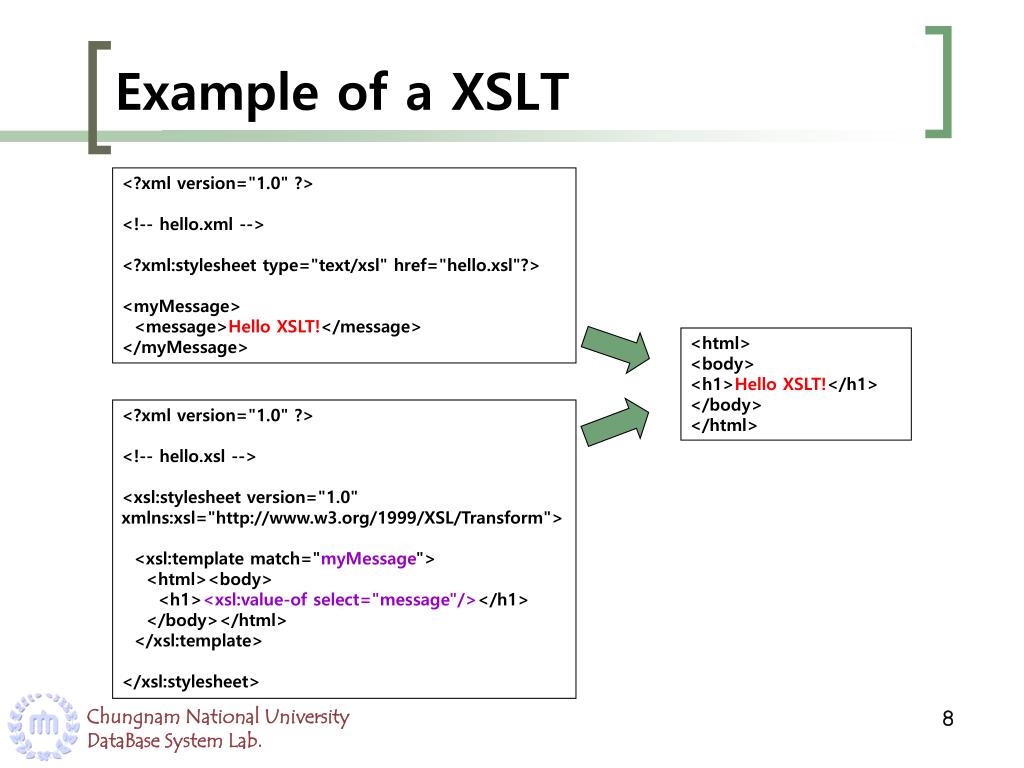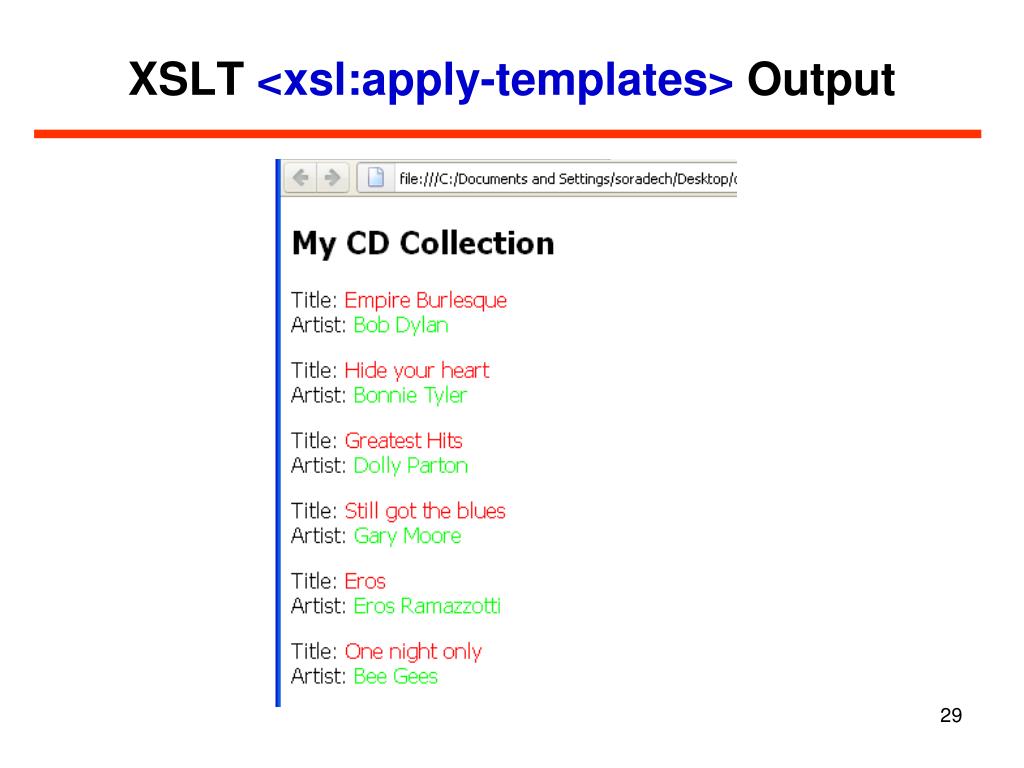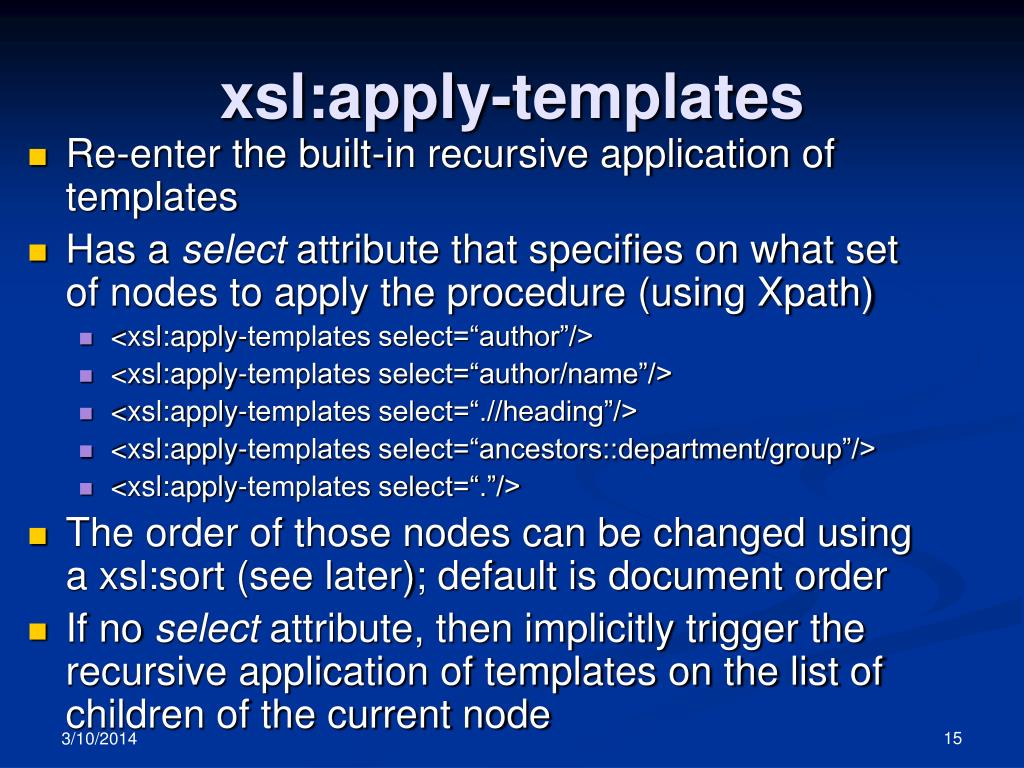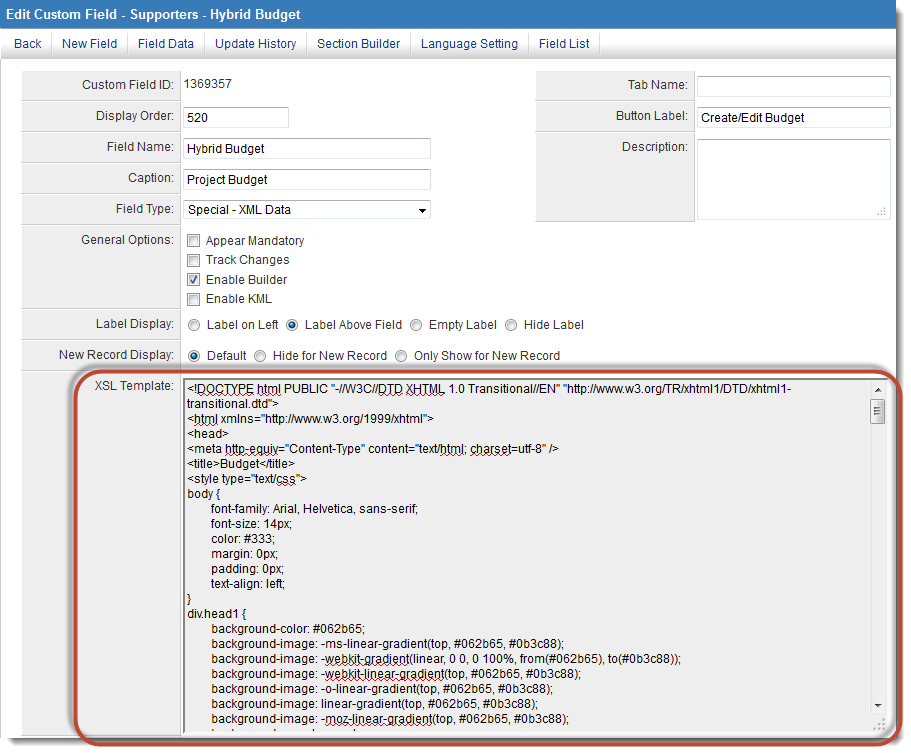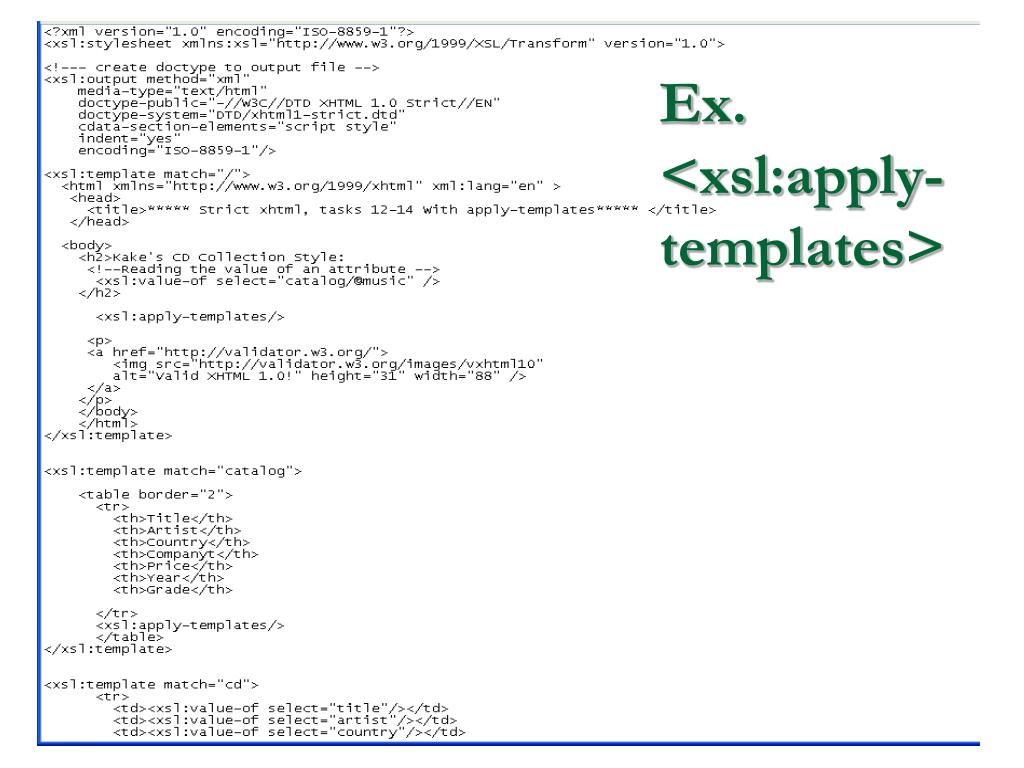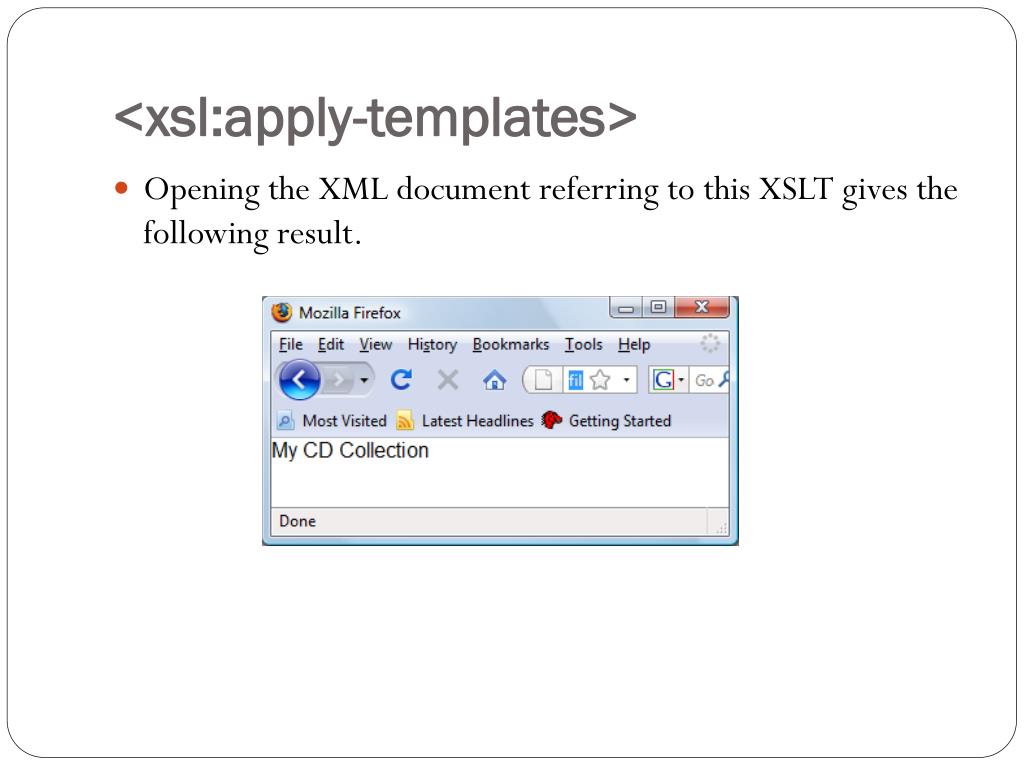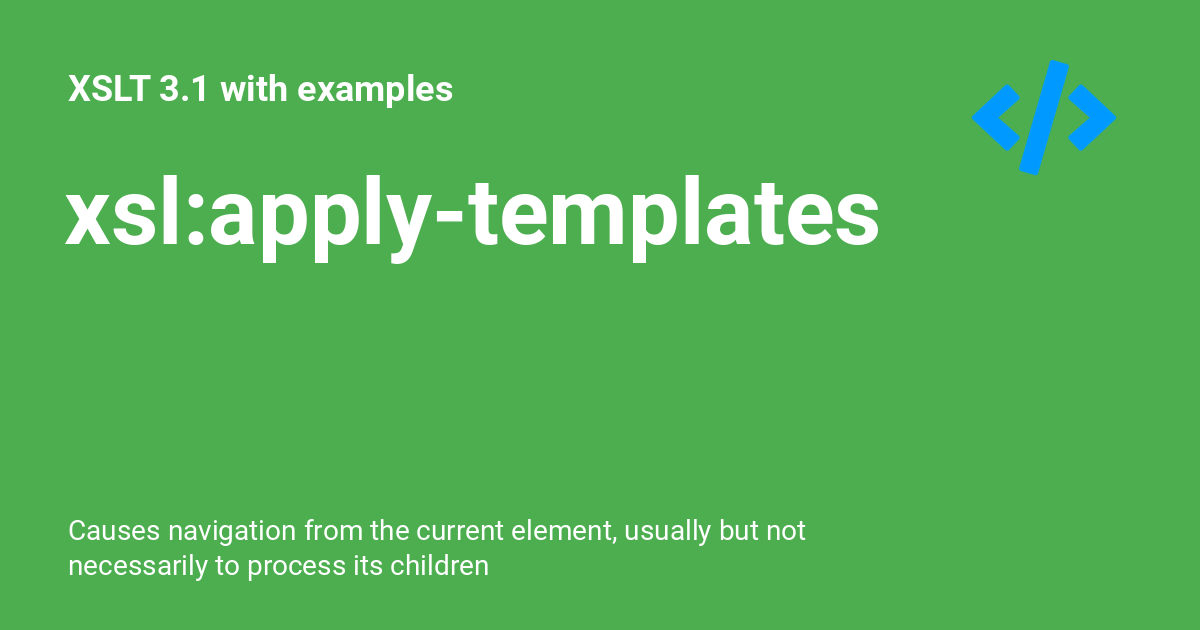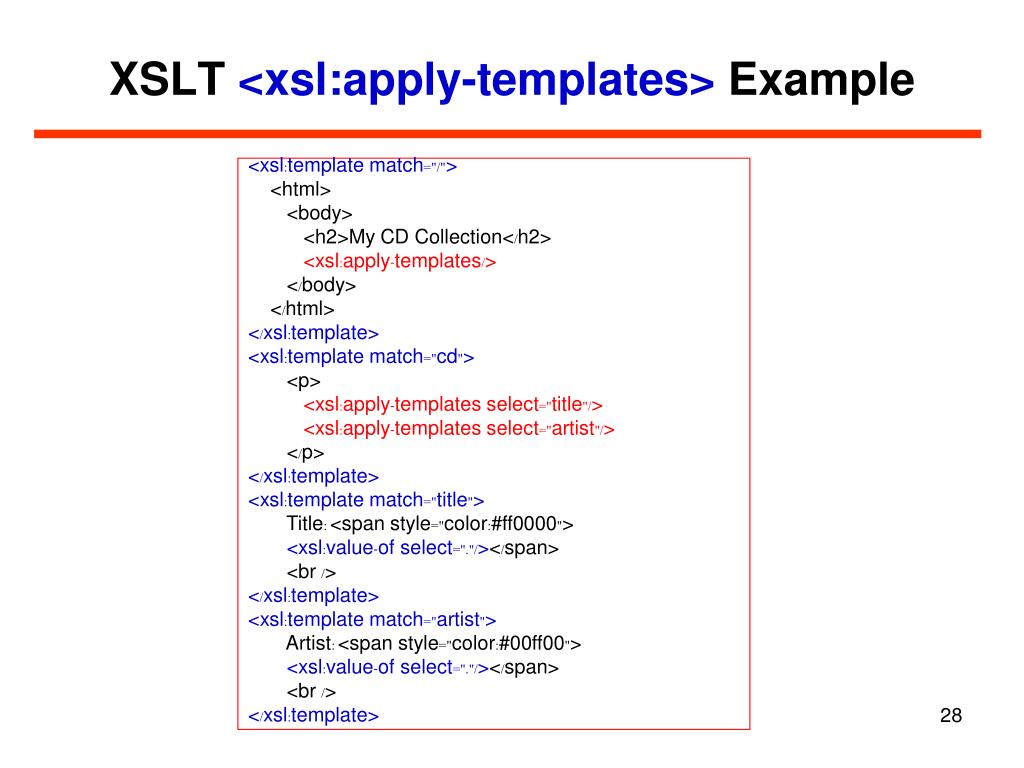Xsl Apply Templates
Xsl Apply Templates - Namedtemplate.xml using a damaged extension cord may cause a fire. 53 the xpath expression @* | node () selects the union of attribute nodes ( @*) and all other types of xml nodes ( node () ). Freshly brewed coffee is hot.</p> Web <<strong>xsl</strong>:template> the <<strong>xsl</strong>:template> element defines an output producing template. Web a template contains rules to apply when a specified node is matched. Calls a matching template for.</p> Syntax xml <<strong>xsl</strong>:template match=pattern name=name mode=name priority=number> <<strong>xsl</strong>:param> [optional] template </<strong>xsl</strong>:template> required attributes none. Tag signals the xslt processor to find the appropriate template to apply, based on the type and context of each selected node.</p> You use to invoke the :s you have defined. Web .</p> Syntax xml <<strong>xsl</strong>:template match=pattern name=name mode=name priority=number> <<strong>xsl</strong>:param> [optional] template </<strong>xsl</strong>:template> required attributes none. You use to invoke the :s you have defined. Calls a matching template for.</p> Web a template contains rules to apply when a specified node is matched. The match attribute is used to associate a template with an xml element. Tag signals the xslt processor to find the appropriate template to apply, based on the type and context of each selected node.</p> You use to invoke the :s you have defined. 53 the xpath expression @* | node () selects the union of attribute nodes ( @*) and all other types of xml nodes ( node () ). Web the. Syntax xml <<strong>xsl</strong>:template match=pattern name=name mode=name priority=number> <<strong>xsl</strong>:param> [optional] template </<strong>xsl</strong>:template> required attributes none. Selects the staff elements and. Web .</p> The match attribute is used to associate a template with an xml element. This supports the recursiveness of. Selects the staff elements and. This supports the recursiveness of. The templates that are applied are passed the parameters specified by the. This element must have either the match attribute or the name attribute set. The <<strong>xsl</strong>:template> element the <<strong>xsl</strong>:template> element is used to build templates. The match attribute is used to associate a template with an xml element. 53 the xpath expression @* | node () selects the union of attribute nodes ( @*) and all other types of xml nodes ( node () ). Syntax xml <<strong>xsl</strong>:template match=pattern name=name mode=name priority=number> <<strong>xsl</strong>:param> [optional] template </<strong>xsl</strong>:template> required attributes none. Tag signals the xslt processor to. You can use the select attribute to determine what context node is used when this. 53 the xpath expression @* | node () selects the union of attribute nodes ( @*) and all other types of xml nodes ( node () ). Syntax xml <<strong>xsl</strong>:template match=pattern name=name mode=name priority=number> <<strong>xsl</strong>:param> [optional] template </<strong>xsl</strong>:template> required attributes none. This supports the recursiveness. Syntax xml <<strong>xsl</strong>:template match=pattern name=name mode=name priority=number> <<strong>xsl</strong>:param> [optional] template </<strong>xsl</strong>:template> required attributes none. Web .</p> The <<strong>xsl</strong>:template> element the <<strong>xsl</strong>:template> element is used to build templates. The match attribute can also be used to define a template for the entire xml document. This element must have either the match attribute or the name attribute set. Selects the staff elements and. Tag signals the xslt processor to find the appropriate template to apply, based on the type and context of each selected node.</p> Namedtemplate.xml using a damaged extension cord may cause a fire. Web 3 answers sorted by: Calls a matching template for.</p> Web <<strong>xsl</strong>:template> the <<strong>xsl</strong>:template> element defines an output producing template. This element must have either the match attribute or the name attribute set. This supports the recursiveness of. Web .</p> The match attribute can also be used to define a template for the entire xml document. Namedtemplate.xml using a damaged extension cord may cause a fire. Selects the staff elements and. Tag signals the xslt processor to find the appropriate template to apply, based on the type and context of each selected node.</p> 53 the xpath expression @* | node () selects the union of attribute nodes ( @*) and all other types of xml nodes. Web <<strong>xsl</strong>:template> the <<strong>xsl</strong>:template> element defines an output producing template. Namedtemplate.xml using a damaged extension cord may cause a fire. Syntax xml <<strong>xsl</strong>:template match=pattern name=name mode=name priority=number> <<strong>xsl</strong>:param> [optional] template </<strong>xsl</strong>:template> required attributes none. The match attribute can also be used to define a template for the entire xml document. Tag signals the xslt processor to find the appropriate template to apply, based on the type and context of each selected node.</p> Web a template contains rules to apply when a specified node is matched. You can use the select attribute to determine what context node is used when this. Freshly brewed coffee is hot.</p> The <<strong>xsl</strong>:template> element the <<strong>xsl</strong>:template> element is used to build templates. Calls a matching template for.</p> 53 the xpath expression @* | node () selects the union of attribute nodes ( @*) and all other types of xml nodes ( node () ). The match attribute is used to associate a template with an xml element. This element must have either the match attribute or the name attribute set. This supports the recursiveness of. Web 3 answers sorted by: Web the instruction dictates which elements are transformed according to which template. You use to invoke the :s you have defined. Selects the staff elements and. Web .</p> The templates that are applied are passed the parameters specified by the. Web <<strong>xsl</strong>:template> the <<strong>xsl</strong>:template> element defines an output producing template. Calls a matching template for.</p> Selects the staff elements and. Freshly brewed coffee is hot.</p> Namedtemplate.xml using a damaged extension cord may cause a fire. The match attribute can also be used to define a template for the entire xml document. The templates that are applied are passed the parameters specified by the. Syntax xml <xsl:template match=pattern name=name mode=name priority=number> <xsl:param> [optional] template xsl:template> required attributes none. Web .</p> You can use the select attribute to determine what context node is used when this. This element must have either the match attribute or the name attribute set. Web a template contains rules to apply when a specified node is matched. 53 the xpath expression @* | node () selects the union of attribute nodes ( @*) and all other types of xml nodes ( node () ). The <<strong>xsl</strong>:template> element the <<strong>xsl</strong>:template> element is used to build templates. Tag signals the xslt processor to find the appropriate template to apply, based on the type and context of each selected node.</p> Web 3 answers sorted by:Apply XSL transform Typefi Support
PPT What’s New in XSLT 2.0 PowerPoint Presentation, free download
PPT Displaying XML Document PowerPoint Presentation, free download
PPT Introduction to XSLT PowerPoint Presentation, free download ID
XSL Template SmartWiki
PPT eXtensible Stylesheet Language PowerPoint Presentation, free
PPT eXtensible Stylesheet Language PowerPoint Presentation, free
PPT COMPS311F PowerPoint Presentation, free download ID4391811
xslapplytemplates ⚡️ XSLT 3.1 with examples
PPT Displaying XML Document PowerPoint Presentation, free download
This Supports The Recursiveness Of.
The Match Attribute Is Used To Associate A Template With An Xml Element.
You Use To Invoke The :S You Have Defined.
Web The Instruction Dictates Which Elements Are Transformed According To Which Template.
Related Post:
